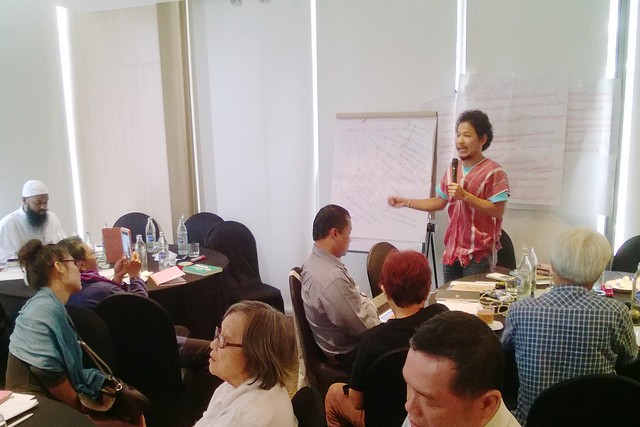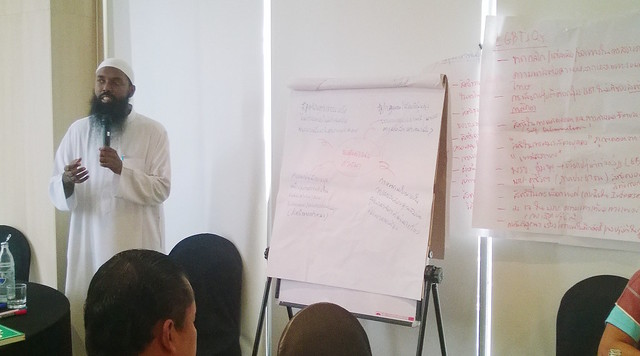Religious groups, such as the Ummatee Group and the Church of Christ in Thailand, as well as non-religious participants brought up the following recommendations: that Thailand have no official or de facto state religion; that religions other than Buddhism have a right to religious holidays; that women are allowed equal religious participation by lifting some temples’ bans on women becoming nuns; and the implementation of check-and-balance mechanisms for religious figures.
Politically and morally problematic individuals must be blocked from becoming religious leaders or figures. “Certain figures should not be able to escape into a temple to avoid investigation,” said Aree Arif from the Ummatee Group. “If religious groups cannot even check the morality of their public figures, then what does that say about society’s level of morality?”
LGBTIQ groups such as the LGBTIQ Surin group called for LGBTIQ rights of partnership, family, legal issues, insurance, and surrogacy to be sanctioned in the Constitution being drafted. Public education should also include gender education in the syllabus, as well as prevention of bullying of LGBTIQ youth. LGBTIQ and religious groups also discussed peaceful ways of coexisting through tolerance and understanding.
Forum Asia representatives stated that at the moment, international interest in Thai human rights situations is still low, so civil society groups have an opportunity to submit grievances through the UPR mechanism.
Thailand’s last UPR in 2011 accepted 134 of 172 recommendations that other countries addressed to Thailand. This year’s review will see to what extent these recommendations have been implemented. Recommendations accepted in 2011 include “the need to protect vulnerable peoples, such as the Rohingya, in accordance with international law.”
Rejected recommendations include those from the United Kingdom, France, Slovenia, Spain, Switzerland, and Canada regarding the lèse majesté law and convictions under it.
Chalida Tajaroensuk from the People Empowerment Foundation encouraged civil society groups to continue drafting recommendations. “The UN is not just a stage for diplomats to say pretty things. It is a mechanism that the people need to utilize so that they can be heard.”
Forum Asia and the People Empowerment Foundation hosted the seminar, "UPR Training for Community-Based Organizations in North, Northeast and Central Thailand," at the Ibis Sathorn Hotel on 29-30 July.


